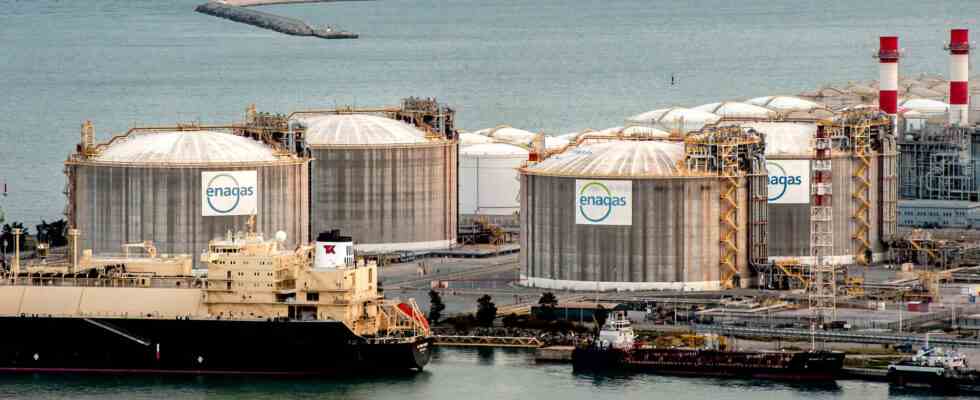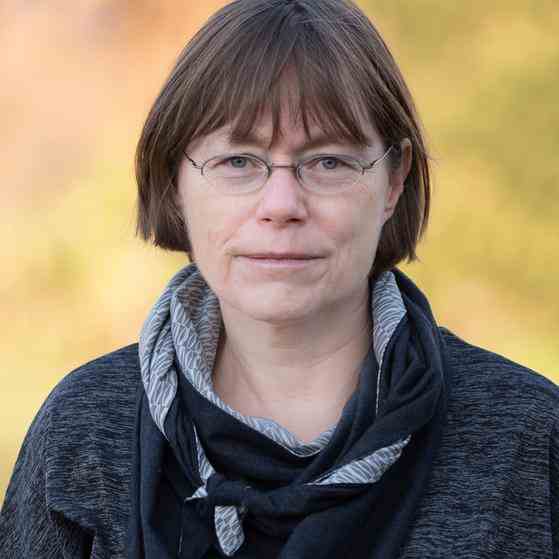Status: 09.08.2022 11:01 a.m
The EU gas emergency plan came into force today. The countries are to consume 15 percent less gas this winter. The EU countries are taking different measures to save gas. An overview.
From today on, the member states of the European Union are required to save as much natural gas as possible – but at least 15 percent. That says the gas emergency plan of the EU Commission. The crux: the savings program is not mandatory. Still, EU countries want to get involved, and in different ways.
Brussels: The EU Commission sets the guidelines
The consumption of natural gas is to be reduced by 15 percent in every EU country, measured against the average of the past five years. Whether or not to follow the austerity call is a decision made solely by the governments in the respective capitals. The savings are voluntary.
Nevertheless, this should reduce gas consumption across the EU by a total of 45 billion cubic meters. In this way one hopes to be able to compensate for the drastically reduced deliveries from Russia. For Germany, the Federal Network Agency considers a gas emergency to be avoidable – at least if less gas is forwarded to other EU countries. That should, however, meet with protests there, because gas is now an extremely scarce commodity everywhere. And the struggle for distribution within Europe is only just beginning.
EU gas emergency plan comes into force
Holger Beckmann, ARD Brussels, 08/09/2022 09:55 a.m
Italy: 19 degrees in public buildings
In Italy there is still no master plan on how to prevent freezing in winter in the event of a possible gas shortage. Gas for heating and hot water is much more important in Italy than in Germany, for example. 70 percent of Italian households heat with gas; in Germany it is only 50 percent.
Despite people’s great dependence on gas – or is it because of it? – politicians in Rome have so far shied away from clear announcements as to how the scarce gas should be distributed with a view to the winter. Energy experts in Italy complain that Prime Minister Mario Draghi’s government, which is only acting as an executive, is reluctant to tell the public what to do and announce rationing. It is foreseeable that they will also be necessary in Italy. So far, Russia has also been the largest gas supplier here.
The Draghi government has concluded agreements on higher gas supplies with several countries in recent months, including Algeria. But this cannot compensate for the previous Russian delivery volume. The government has decided that the permissible temperature in public buildings will be lowered by one degree: to 19 degrees, but with a two-degree tolerance – so it can also be heated to 21 degrees without being liable to prosecution.
Saving gas in Italy – government in Rome without prioritization
Jörg Seisselberg, ARD Rome, 08/09/2022 09:23 a.m
Austria: Gas storage facilities are already full
Austria is still trying to avoid an answer to the question of who gets how much gas in an emergency – or who gets the gas tap completely turned off. But prepare yourself for emergencies. A “natural gas steering regulation” should do it, with which the industry and the energy suppliers are to be made to switch to oil, coal or renewable energy sources as quickly as possible.
Both eyes are turned a blind eye to the emission limit values. The state bears the costs for the conversion. The fine print can be used to interpret who should be supplied to the last: “Protected customers”, “Households” and “basic social services” are among them. However, the Green-Conservative government in Vienna is – typically Austrian – hoping that things will work out somehow.
Not without reason: Austria’s gas storage facilities are well filled at the moment – with more than 50 percent of annual consumption. For comparison: Germany’s storage facilities currently only contain around 16 percent of annual consumption. Dependence on Russian gas is falling, now below 50 percent. In addition, according to Climate Protection Minister Leonore Gewessler from the Greens, up to ten percent less gas is now being used. Also because the prices have risen significantly – and continue to rise.
Austria: gas prioritization? Still enough in the stores
Wolfgang Vichtl, ARD Vienna, 08/09/2022 09:35 a.m
France: Systemically important facilities are supplied
The French already know: autumn and winter will be tough. That’s what their president told them – and in doing so, of all things, dampened the party mood on the national holiday in mid-July. Russia would use gas as a weapon, according to Emmanuel Macron. France must therefore arm itself and save ten percent of its energy in two years. State authorities should set an example, everyone should follow suit: fewer neon signs, heat only when the outside temperature is below 19 degrees, cool only when the outside temperature is over 26 degrees.
If necessary, the government wants to confiscate gas-fired power plants in order to only supply system-relevant companies. Consumers are given priority by Decree Nuimmer 495 of April 7, 2022. Large customers with more than five gigawatt hours per year, on the other hand, must expect shutdowns. In an emergency, consumption can be drastically reduced within two hours. And the government has set itself the goal of filling up the strategic gas reserves to 100 percent by the beginning of November.
The big ones should report in writing the amount of gas that would result in significant economic losses. After that, the prefect of each department, i.e. the highest representative of the central power there, sets a list of priorities. Those who work in the public interest and cover essential needs of the nation – such as hospitals and schools – are cared for. And those with the greatest economic losses. Violators face fines, even though the country is only about 17 percent dependent on Russian gas.
Nevertheless, the government is under pressure: France’s main source of energy is nuclear power. But more than half of the often outdated nuclear power plants are currently idle for maintenance.
Gas prioritization – how is it going in France?
Stefanie Markert, ARD Paris, 08/09/2022 09:37 a.m




